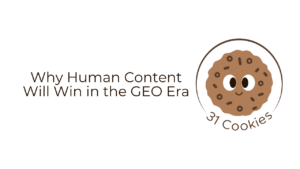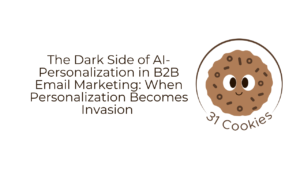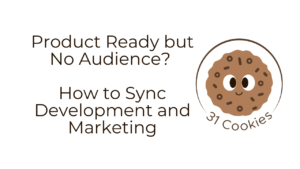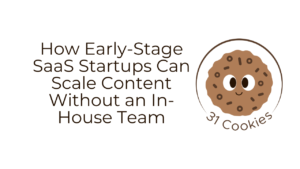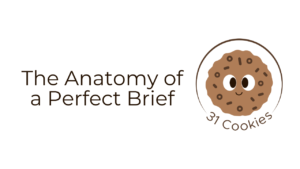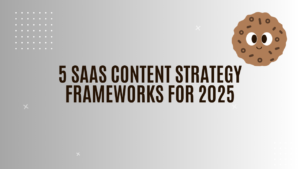Content marketing for SaaS isn’t as straightforward as it might seem. You can’t just churn out blog posts and hope for the best.
SaaS businesses face a unique challenge: they need technically accurate and engaging content while also driving conversions.
Without expert help, it’s easy to miss the mark. This is where a content marketing agency steps in. A content marketing agency fills this gap by crafting a tailored strategy that speaks directly to your target audience while aligning with your business goals.
But what exactly should you expect from this collaboration? Let’s explore.
What to Look for When Choosing a SaaS Content Marketing Agency
Picking the right SaaS content marketing agency can feel overwhelming, but focusing on these key factors makes the process easier:
Experience in SaaS and tech industries
Look for agencies that truly understand the SaaS ecosystem. They should know how to simplify technical jargon and create content that speaks to both decision-makers and end-users.
Proven portfolio of results
A solid portfolio says it all.
Check for case studies that highlight measurable outcomes, like increased traffic or lead conversions. Testimonials from clients in similar industries can give you confidence in their expertise.
Flexibility to handle different SaaS niches
Whether you’re targeting B2B or B2C audiences, the agency should adapt seamlessly. They must craft strategies that resonate with different buyer personas and industries.
10 Things to Expect When Working With a SaaS Content Marketing Agency
From tailored strategies to transparent communication, the right agency brings expertise, results, and adaptability to help your SaaS business thrive.
Here are 10 key things you can anticipate when working with a SaaS content marketing agency:
1. Understanding your goals
A great SaaS content marketing agency starts by understanding your business goals. This isn’t just about asking what kind of content you want but digging deeper:
- What audience are you targeting?
- Are you focusing on user acquisition, retention, or both?
- Do you want to prioritize brand authority, SEO, or lead generation?
Expect them to host discovery calls, analyze your competitors, and audit your current content strategy to align their approach with your objectives.
💡 Pro Tip: Prepare clear, measurable goals before your initial meetings. For example, specify that you want to increase organic traffic by 30% in six months or generate 500 qualified leads per quarter.
2. A tailored content strategy
SaaS marketing isn’t a cookie-cutter process. A good agency will create a customized content strategy for your needs and pain points.
A skilled agency will craft a strategy tailored to your business goals and audience by:
- Customer journey mapping: Understanding how your audience moves from awareness to decision-making
- Keyword research: Finding relevant, high-intent keywords that align with your niche
- Content types: Identifying formats—from blog posts and case studies to video tutorials and white papers—that resonate with your target audience
To maintain clarity and collaboration, ask the agency to provide a content calendar or roadmap. This should include topics, timelines, and distribution channels.
This roadmap ensures transparency, helps you track progress, and keeps all stakeholders aligned with the strategy’s objectives.
3. Expertise in SaaS-specific content
SaaS products are often very complex and detail-oriented. It requires a deep understanding of the industry and how to communicate effectively with both technical and non-technical audiences.
Agencies experienced in SaaS content marketing will simplify technical jargon without losing depth. For instance, instead of ‘AI-powered predictive analytics,’ they might say, ‘Our tool helps you predict customer behavior and make smarter decisions.’
Further, they highlight product benefits through storytelling. Since stories connect better than specs, agencies craft use cases or customer success stories to show how your product solved a problem or delivered ROI.
Additionally, marketing agencies showcase unique selling points. It’s easier to explain why your SaaS Tool offers better integrations than competitors through compelling case studies or comparison guides.
4. SEO-focused content creation
SEO is the cornerstone of any SaaS content strategy. A skilled agency will:
- Use advanced tools like Ahrefs or SEMrush for keyword research
- Optimize content for search engines without compromising readability
- Focus on long-tail keywords, which are particularly effective for SaaS niches
🔎 Did You Know? Long-tail phrases like ‘best CRM for healthcare startups’ attract highly targeted traffic, often leading to better conversions than generic terms.
5. Data-driven approach
SaaS marketing is all about measurable results. Expect the agency to:
- Set clear KPIs: Common SaaS KPIs include website traffic, lead-to-customer conversion rates, and customer acquisition cost (CAC).
- Use analytics tools to track performance: Tools like Google Analytics or HubSpot provide insights into what content resonates with your audience and what doesn’t.
- Continuously optimize strategies based on data: For instance, if a blog post with a high bounce rate has a low conversion rate, the agency might revise the call-to-action (CTA) or improve internal linking.
💡 Pro Tip: Regularly review these metrics during check-ins to ensure the agency delivers ROI.
6. Collaboration with your team
Successful SaaS content marketing requires close collaboration. While the agency brings expertise, you provide essential insights about your product and customers. You must be prepared to:
- Provide product demos so the agency understands your offering. This helps the agency grasp your features, benefits, and competitive advantages, enabling them to craft accurate content.
- Share customer personas or audience insights to understand your ideal customer’s pain points, preferences, and behavior.
- Collaborate on tone, messaging, and brand voice to ensure consistency.
- Multi-channel content distribution
7. Multi-channel content distribution
Creating great content is only half the battle. Distribution is key.
SaaS marketing agencies often handle:
- Social media promotion: Agencies often schedule posts on platforms like LinkedIn or Twitter to reach your audience where they’re active.
- Email campaigns tailored to different buyer personas: Segmented campaigns deliver personalized content to prospects at different stages of the funnel.
- Paid ad campaigns to amplify reach: Targeted PPC campaigns on Google or social platforms ensure high-value content reaches the right audience.
💡 Pro Tip: Ask the agency to repurpose content creatively—for example, turning a blog post into LinkedIn posts, email newsletters, or even a webinar topic.
8. Transparency and communication
Expect regular updates and open lines of communication. Most agencies schedule weekly or bi-weekly calls to review progress and keep you informed about progress, challenges, and upcoming deliverables.
You will also be having monthly performance reports to get detailed insights into traffic growth, lead generation, and campaign performance.
9. Flexibility and scalability
Your needs may evolve over time, especially in the fast-paced SaaS world. A good agency will adapt by:
- Scaling content production as you grow: For instance, increasing blog frequency or adding new formats like podcasts.
- Testing new strategies: Experimenting with interactive tools, live demos, or user-generated content (UGC) to see what resonates.
- Pivoting tactics based on performance data: For example, if email campaigns perform better than blogs, agencies can shift focus to email content.
10. Results take time
While short-term gains like increased traffic might come quickly, long-term benefits like brand authority and customer loyalty take time. Expect a gradual but steady ROI as your content gains traction.
You can ensure a productive partnership with your SaaS content marketing agency by focusing on:
- Short-term wins: Expect initial traffic boosts from SEO efforts or social promotions.
- Long-term gains: Brand authority, customer trust, and organic lead generation build up over months as content gains traction.
💡 Pro Tip: Set realistic expectations and work with the agency to create a timeline for achieving specific goals.
Success Stories: Examples of SaaS Growth with Agencies
1. Omniscient
Jasper, an AI writing tool, collaborated with Omniscient to expand its content program and accelerate growth. The company sought a robust content strategy to address challenges like limited marketing resources with a 14-person team in 2021, a high-risk domain migration from jarvis.ai to jasper.ai, and the need to convert organic traffic into paying users.
Solutions
Omniscient developed a phased content strategy:
- Drive top-of-funnel traffic
- Focus on product-led content and keywords
- Target bottom-of-funnel searchers evaluating AI tools
- Boost Jasper’s visibility during domain migration with SEO, content audits, and link-building
Results
- 810% growth in organic blog sessions
- 400X increase in product signups from blog content
- $4M+ annual recurring revenue from blog-attributed users
- Conversion rate from blog visits to product signups rose from 1% to 8%
2. Siege Media
Figma partnered with Siege Media to enhance its Resource Library and drive conversions for FigJam, its collaborative whiteboard tool. Siege Media focused on creating top-funnel content targeting workplace collaboration and UI design, yielding remarkable results.
Strategy
- Developed content targeting workplace professionals using ‘what is’ and ‘how to’ keywords
- Created 99 articles for Figma’s Color Meanings Hub, focusing on UI design
- Emphasized SEO optimization to rank on Page One for 93 target keywords
Results
- 2,065% increase in organic traffic value for the Resource Library
- 4,125% organic traffic growth to the Resource Library
- Generated 2,714 conversions for FigJam
- $529,681 increase in organic traffic value
Common Challenges When Working with SaaS Agencies
Working with SaaS agencies can come with a few hurdles. Striking the right balance is key to a successful partnership. Here are five common challenges you should expect when working with SaaS agencies:
- Misaligned expectations on results or timelines: Different interpretations of success or delivery dates can cause frustration.
- Balancing product-focused content with storytelling: Focusing on features without compelling narratives can make the content feel dry.
- Addressing technical jargon: Too much complexity can alienate non-technical readers, while oversimplifying risks losing critical details.
- Adapting to rapidly changing technology: SaaS products evolve quickly, requiring constant updates to messaging and content.
- Managing communication and feedback loops: Multiple stakeholders can complicate decision-making, slowing progress and creating misunderstandings.
Bonus Tips for Maximizing the ROI of SaaS Content Marketing Agencies
- Set clear expectations on goals, timelines, and deliverables.
- Share product insights and unique selling points.
- Regularly review and adjust the content strategy.
- Collaborate on audience targeting.
- Use analytics to guide content decisions.
- Provide timely, constructive feedback.
- Prioritize quality content over quantity.
- Monitor competitors for opportunities and gaps.
Working with a SaaS content marketing agency can elevate your business by turning complex, technical concepts into compelling, conversion-driven content.
But understanding what to expect from the process is key. From the outset, expect a tailored strategy that blends technical expertise with engaging storytelling. These agencies help craft content that speaks your audience’s language while staying true to your brand’s voice and business goals.
They’ll also streamline your content production process, ensuring it’s aligned with your sales funnel and drives conversions.
Ready to get the most out of your content marketing? Partner with an agency that can transform your SaaS business strategy. Don’t just create content—create results.
Reach out to 31Cookies to see how we can help you today!



